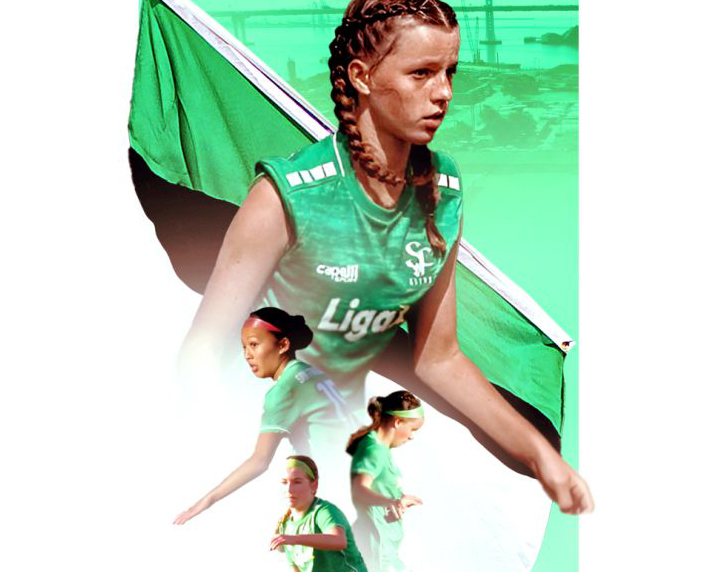Yet – This word comes directly from the Queen of Mindset, Carol Dweck. She delivered a great TED Talk on the power of the word ‘yet’ that reminds us as coaches about the importance of focusing children on future mastery rather than present frustration. The word we hear most when a child is frustrated or lacks confidence is “can’t”. When our players tell us they can’t accomplish something that is wholly possible to attain but they have not yet mastered, we need to finish their thought with the word yet. Get children past the can’t and onto what it would look like if they continued to practice. Yet means there is hope. Yet implies a future that is different from this present moment. Yet reminds us that we strive on a continuum that is ever-changing and that is fully within our power to change it.
The next time your player says “I can’t” simply respond with the all-powerful word “Yet”.
“Did you mean you can’t yet?”
Will – Instead of a children using a terminal word like no or can’t, get them thinking about the word “will”. I will try this new skill. I will be fearlessly learning the game. Can’t is a very easy word to use when faced with a challenge. Will is a more difficult word, because you are committing to expending effort to accomplish the task, but it teaches our children the power of positive thinking and the importance of hard work. It also creates a verbal contract. They are making a promise with the word “will” to themselves, their teammates, and their coaches.
Next – When a child fixates on a current “Failure” get them thinking about NEXT. Make up for a mistake the NEXT time you touch the ball. Do not worry about this kick, focus on the next kick. Keep their minds focused on what can come next.
Effort/Hard Work – Instead of telling our children how good they are at a skill, remind them how hard they work. Getting a child to think about the effort needed, keeps them in a growth mindset and reminds them anything is doable through effort and not an innate skillset. Children who think hard work is at the core of skill mastery will always accept a challenge and always believe they are in control of getting better. Children who think they are “naturally gifted” begin to believe it is a fixed trait that cannot be changed and tend to avoid challenges.
What if – Our athletes tend to get caught in the world of what they know. They will mimic all we teach them and apply all the known techniques. They get so focused in the current knowledge base, they can forget to apply creativity or problem-solve new ways to do things. We need to continue to encourage children to grow through asking what if and letting them seek out new answers to common problems.
In addition, what if puts the power back in the hands of our children. All too often we tell them what we want them to do. We give them the answers and want them to regurgitate the material back to us when they play. Soccer should be played less like a multiple choice quiz and more like a long essay test. Children should be presented with problems and asked “what if” to get them thinking about their own answers, their own solutions, their own way to play the game. It also empowers our children to own the soccer experience. If we do not ask children what if, and always tell them what to do, we own the experience and they are merely game pieces on our chess board of coaching.
How – This is another problem-solving and empowerment question that directs our players to think about solutions to current problems. When athletes are stuck in the process and are not getting to what they believe are good outcomes with learning, start asking them “How” questions to get them into an investigative mindset. “How can we do this differently?” “How would this look if we…” The more you get them to run different scenarios in their heads, the more you are tapping that creative problem-solving, focusing them on growth, and re-engaging them in the process without the frustration.
When – Most of us speak about the future in “If” terminology. We dream about what things could be and say “If I played college soccer it would be awesome.” ‘If I got that job, we could move to San Diego.” The human brain will kick into overdrive when presented with firm realities. “If” language does not turn on all the processors in our mind. To get a child focused on solving problems, getting better, and looking past this moment, you have to alter the words they use when they describe potential outcomes. Instead of “if”, our children should be corrected to say “when”. “When you learn this move, you will be able to get out of traffic in the midfield safely”. “When you are able to master bending balls, you can be the go to player for free kicks.” The switch of one simple word can trigger the brain and the body to achieve because it moves the sentence from a dream scenario, to a future concrete reality.






